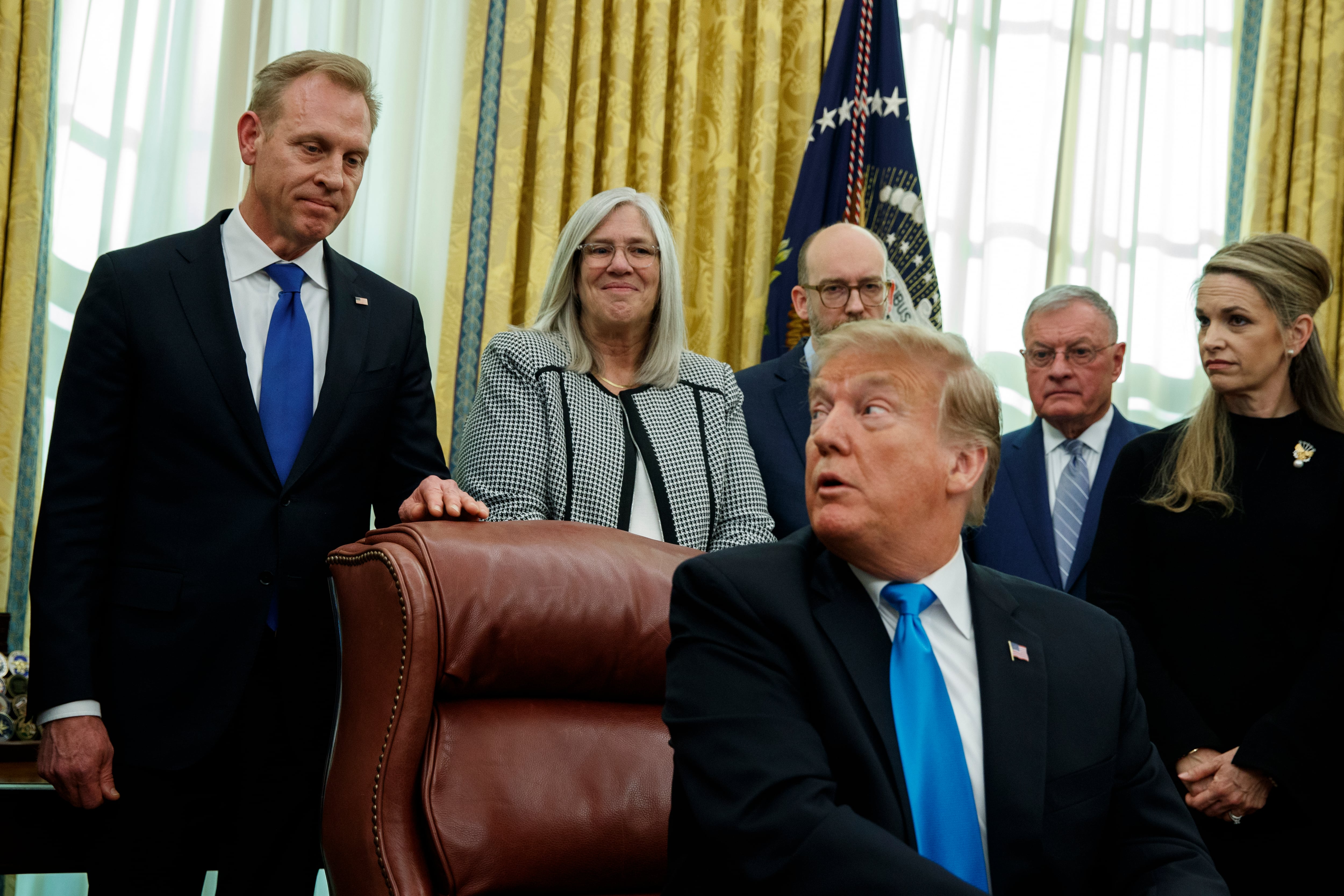WASHINGTON — Lead congressional Democrats have proposed a bill to raise statutory budget caps for two years, with $733 billion for defense in fiscal 2020 — but it’s likely to spark a fight with the White House.
The bill released Tuesday reset spending limits to $664 billion for fiscal 2020 and $680 billion in fiscal 2021, with $69 billion in cap-exempt overseas contingency operations, or OCO, funding in each year.
The totals — $733 billion for fiscal 2020 and $749 billion for fiscal 2021 — would fall between the $716 billion enacted fiscal 2019 and the $750 billion the president proposed for fiscal 2020.
The nondefense side of the budget would rise 5.7 percent from fiscal 2019 to $631 billion in fiscal 2020, and to $646 billion in 2021. They propose $8 billion per year for nondefense OCO.
The House Budget Committee is set to mark up the bill on Wednesday.
Unless the president signs a caps deal, existing law would shrink the $716 billion defense budget cap to $576 billion and take the nondefense limit from $597 billion to $543 billion.
RELATED

While Republican lawmakers, including leaders, are becoming more and more vocal about raising the spending limits, the White House — in a likely play to the Republican base — remains dead set against it.
“We are opposed to a caps deal. Democrats still haven’t written a budget and are already talking about busting the bipartisan spending restrictions they agreed to previously,” a senior administration official told Roll Call on Monday.
House Majority Leader Steny Hoyer, D-Md., said last week that he has spoken with both Senate Majority Leader Mitch McConnell, R-Ky., and Senate Appropriations Committee Chairman Richard Shelby, R-Ala., who both want a deal to ease budget caps. But not the White House’s acting chief of staff, Mick Mulvaney.
“Unfortunately, I don’t think Mr. Mulvaney wants to reach a caps deal, he wants it as leverage,” Hoyer said. “I’ve been trying for the last two months to get meaningful negotiations [to reach a two-year] deal. I haven’t been successful mainly because the president and Mr. Mulvaney aren’t interested in reaching such a deal.”
The caps bill’s sponsors, House Budget Committee Chairman John Yarmuth, D-Ky., and House Appropriations Chairwoman Nita Lowey, D-N.Y., are pitching the “Investing for the People Act of 2019” as a means to maintain parity between the defense and non-defense sides of the budget, and a path to budget stability.
“The bill provides stability and predictability to federal funding and ensures a timely and orderly appropriations process,” a bill summary reads. “As we have learned too many times in the past, governance by continuing resolution inhibits military readiness, hinders efficient agency planning, and undermines investment by local government and the private sector.”
RELATED

Democrats have criticized the president’s budget for parking $174 billion in OCO in a bid to strengthen his hand in budget negotiations against them. Yarmuth last month called it “a gimmick to prop up defense spending.”
Pentagon budget planners initially planned for a $733 billion FY20 budget request. Then, in October, Trump ordered a cut down to $700 billion — before, in November, key Republicans and then-Defense Secretary Jim Mattis talked President Donald Trump up to $750 billion.
Joe Gould was the senior Pentagon reporter for Defense News, covering the intersection of national security policy, politics and the defense industry. He had previously served as Congress reporter.






